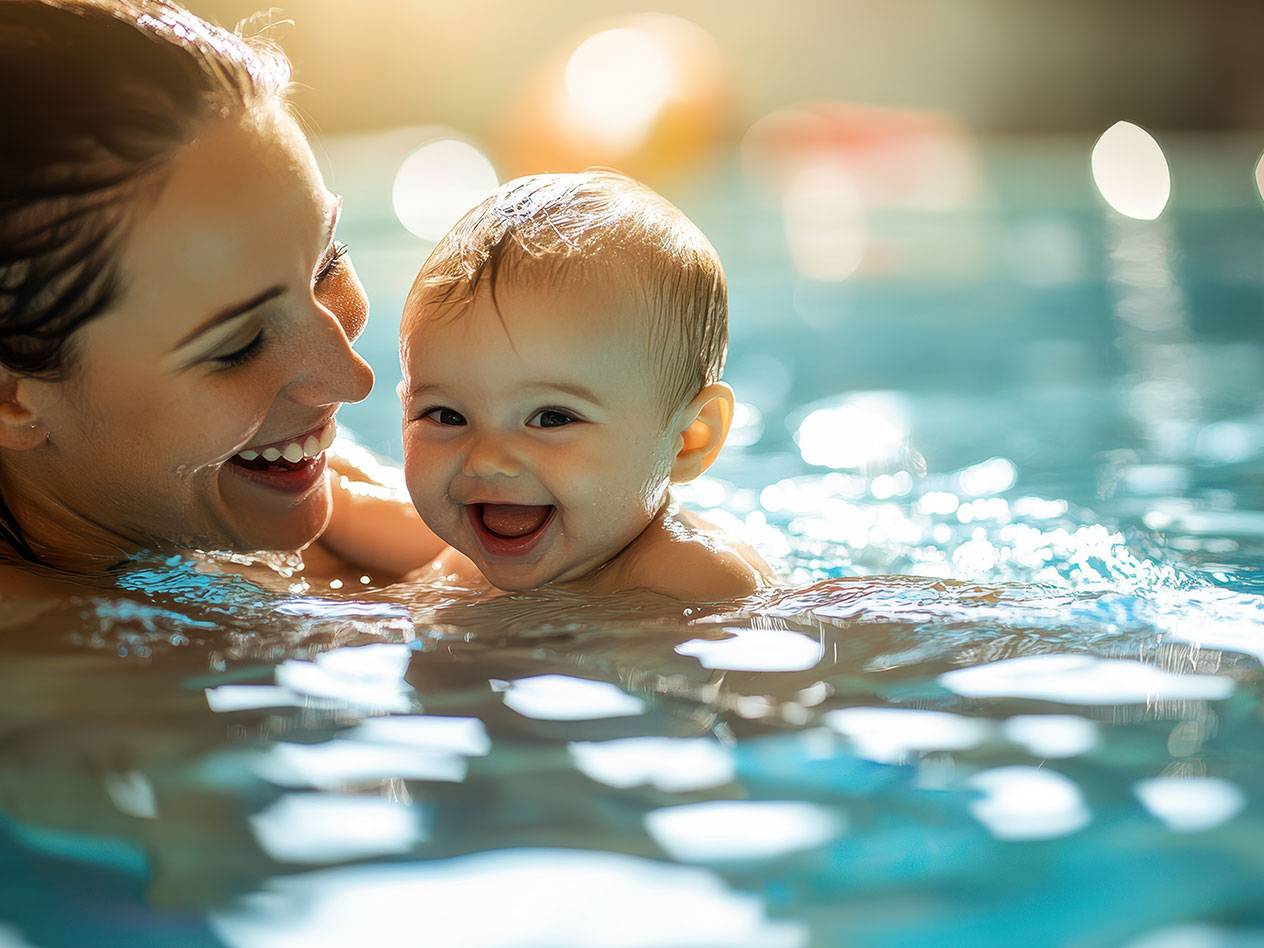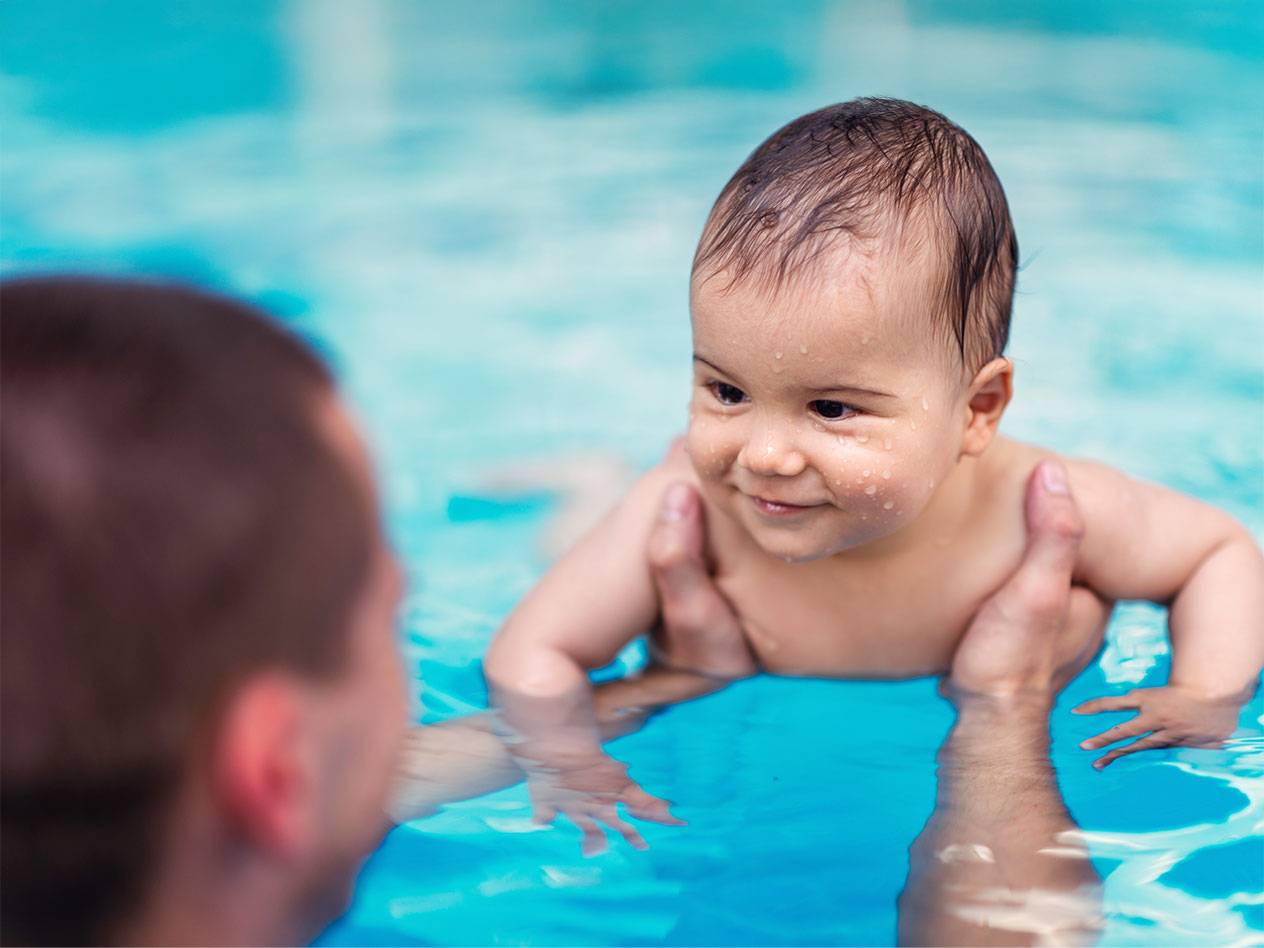Baby swimming
Baby swimming strengthens the bond between parents and child. In most cases, it is great fun for the little ones and has a positive effect on their motor and cognitive skills. Local swimming pools will offer a range of baby swimming courses. If you are thinking about when you should start baby swimming for the first time, you can use recommendations on age and physical development as a guide.
Baby swimming lessons
Most local swimming pools offer a range of swimming lessons including baby and toddler lessons. Baby swimming courses are usually offered by certified swimming teachers. Guided lessons will enable both parents and baby to grow in confidence in the water.

Many babies love water. Researchers believe that it reminds them of their time in the womb. And as we know water has a calming and soothing effect
Advantages
- Promotes the baby's motor and cognitive skills
- Fun activity for the baby and parent
- Strengthens the bond between parent and child
- Due to the zero-gravity conditions, the baby can try out new movements in a playful way
- Early experience with water increases self-confidence when learning to swim later on
- Promotes the mother's recovery
- Enables parents and child to make new social contacts
Disadvantages
- Chlorinated water can cause allergies
- Babies swallow water and ingest bacteria and germs, which can lead to gastrointestinal infections, respiratory diseases or middle ear infections
- Critics argue that in many courses, babies are turned into passive "object" that are not allowed to gain much active self-awareness in the water.
What age can babies start swimming?
From when you and your little one should start baby swimming depends on various factors. These include, for example, physical maturity and whether your baby has an increased risk of allergies. Temperament also plays an important role - every baby reacts differently to being in water.

Does your baby enjoy having a bath at home? That's a good prerequisite for baby swimming in a large pool. Most parents start classes between the fourth and sixth month of their baby's life. By then, the baby’s health system can regulate its own body temperature to a certain extent. However, this varies from child to child so please discuss with your midwife or GP.
Slowly get used to the temperature difference
Slowly get your baby used to the cooler water temperature that is common in most swimming pools by having the bath water colder each time at home.

Physical development as a further factor
Babies between four and six months become increasingly active and can usually hold their head up for a short time in the prone position. This is an important prerequisite for you to be able to use positions in baby swimming where your baby lies on its stomach on the water. In most cases, instructors will recommend that you keep switching between laying face upwards and prone position so that it doesn't become too strenuous for your little one.
What to bring for your first swim?
- Swimming nappies in the correct size
- Hooded towel
- Bath toys
- Drinks & snacks
- Bathrobe
- Shampoo/body wash and body lotion
